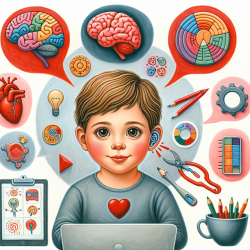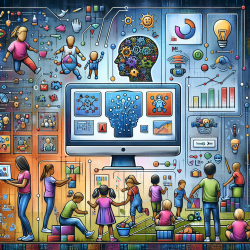As practitioners, we strive to provide the best possible outcomes for our pediatric patients. The recent research article titled "New Insights into the Education of Children with Congenital Heart Disease with and without Trisomy 21" offers critical data that can help us refine our approaches to support children with congenital heart disease (CHD) and Trisomy 21 (T21) in their educational journey.
The study analyzed data from 2873 patients registered in the German National Register for Congenital Heart Defects, highlighting the educational challenges faced by children with CHD, particularly those with T21. Here are some key findings and practical applications for improving educational outcomes for these children:
Key Findings
- Children with T21 and CHD have a higher demand for early specific interventions compared to non-T21 CHD patients.
- T21 CHD children more frequently attend special schools, with a significantly lower probability of attending a grammar school.
- Psychiatric disorders, such as learning, emotional, or behavioral disorders, are more prevalent in T21 CHD patients (82.6%) compared to non-T21 CHD patients (31.4%).
Practical Applications
1. Early and Specific Interventions
Given the high demand for early interventions in T21 CHD patients, practitioners should advocate for and implement early supportive measures, including:
- Speech therapy
- Occupational therapy
- Physiotherapy
- Psychotherapy
These interventions should be initiated as early as possible to maximize developmental potential and improve educational outcomes.
2. Tailored Educational Pathways
The study indicates that T21 CHD children often attend special schools. However, with targeted support, some can transition to regular schools or even grammar schools. Practitioners should work closely with educators and families to develop individualized education plans (IEPs) that cater to the unique needs of each child.
3. Addressing Psychiatric Disorders
The high prevalence of psychiatric disorders in T21 CHD patients necessitates a holistic approach to treatment. Practitioners should:
- Conduct routine follow-up examinations to identify developmental deficits early.
- Provide low-threshold access to counseling and therapeutic support services.
- Collaborate with mental health professionals to address learning, emotional, and behavioral disorders effectively.
4. Engaging Families
Parental involvement is crucial in supporting the educational development of children with CHD and T21. Practitioners should educate families about the importance of early interventions and encourage active participation in their child's education and therapy sessions.
Encouraging Further Research
While this study provides valuable insights, there is still much to learn about the educational development of children with CHD and T21. Practitioners are encouraged to engage in further research to explore additional strategies and interventions that can enhance educational outcomes for these children.
To read the original research paper, please follow this link: New Insights into the Education of Children with Congenital Heart Disease with and without Trisomy 21.










